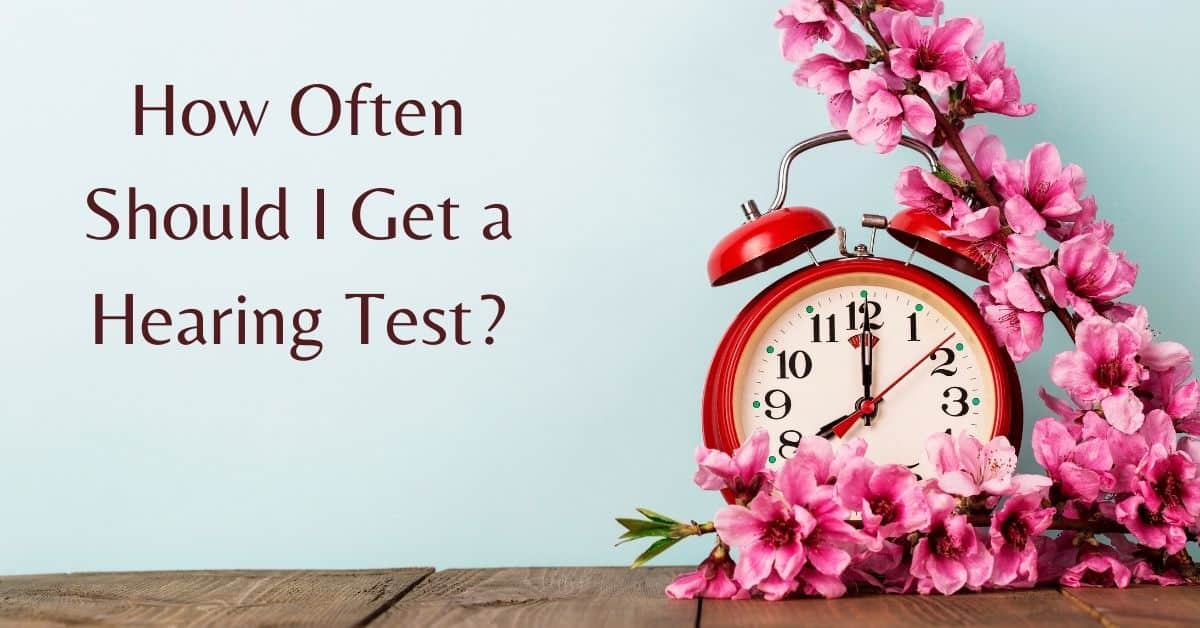People typically schedule annual health screenings that usually include physicals, dental check-ins, and vision tests. What is commonly left out of annual health screenings is hearing tests. People are often unaware of the importance of hearing health and ways it impacts overall health. Hearing is a major way we navigate and engage in daily life. With hearing loss being one of the most pervasive medical conditions today, it is important to have your hearing regularly tested.
How Often Should Hearing Be Tested?
Newborns and school aged children typically have their hearing assessed regularly during health screenings. But hearing tests become infrequent for adults. So how often you should have your hearing tested depends on a few factors including: age, occupation, if you are experiencing symptoms etc. Helpful guidelines to follow include:
- Adults Ages 18-40: according to the American Speech-Language-Hearing Association’s (ASHA) guidelines, adults between the ages of 18-40, should have their hearing tested every 3-5 years. This is specific to people who are not experiencing any hearing loss symptoms and who are not regularly exposed to loud noise.
- Adults Ages 60 and Older: the risk of developing age-related hearing loss, also known as presbycusis, increases with age. According to the Hearing Health Foundation (HHF), for adults:
- Ages 75 and older: 50% have hearing loss
- Ages 65-74: 25% have hearing loss
Experts recommend that people in this age group have their hearing tested every year. Early detection of hearing loss is incredibly helpful in transitioning into better hearing health with greater ease.
- People Exposed to Loud Noise: consistent (or one time) exposure to loud noise is another common cause of hearing loss. The workplace and regular use of personal audio devices are common ways people absorb hazardous levels of noise. According to the HHF:
- 30 million people are exposed to hazardous noise levels in the workplace
- 50% of people, ages 12-35, could be exposed to unsafe noise levels from audio devices and entertainment venues
- Musicians are 4 times more likely to develop hearing loss
Because of this significant increased risk of hearing loss, people who regularly absorb loud noise should also have their hearing tested every year.
- People with Hearing Loss: people who have already been diagnosed and treated for hearing loss should also have their hearing tested every year. Hearing ability can change over time so it is important to regularly have your hearing needs evaluated.
Signs You Need to Have Hearing Tested
If you notice any changes in your hearing and/or experience any symptoms of hearing loss, it is critical to have your hearing tested as soon as you can. Hearing loss symptoms include the following:
- Tinnitus: a buzzing, ringing, clicking like noise in one or both ears
- Increasing the volume on electronic devices (TV, phone, speaker etc.)
- Sound is slurred or muffled
- Difficulty hearing and following entire conversations, especially in environments with background noise
- Needing to move to a quieter area to have a conversation
- Trouble hearing on the phone
- Frequently asking others to speak louder, slower, and/or repeat themselves
- Not hearing your alarm clock or other appliances (microwave for example)
These symptoms can be experienced mildly to profoundly and can impact your ability to manage professional and personal responsibilities. You may find yourself wanting to avoid conversations altogether, skipping out on social gatherings and events.
Social withdrawal is a common effect of hearing loss that can also impact mental health. If you recognize any of these symptoms, you should schedule an appointment to have your hearing evaluated.
Benefits of Hearing Tests
Hearing tests are relatively simple and noninvasive! They involve a painless process that measures your hearing ability in both ears. Conducted by a hearing healthcare specialist (an audiologist), hearing tests identify any impairment, the degree, and specific type of hearing loss people are experiencing. This establishes your hearing needs and allows an audiologist to discuss the most effective ways to meet those needs.
Fortunately, there are useful ways to treat hearing loss. The most common treatment is hearing aids which are electronic devices that are designed to process sound, significantly enhancing one’s hearing ability! Contact us today to schedule an appointment for a hearing test.

